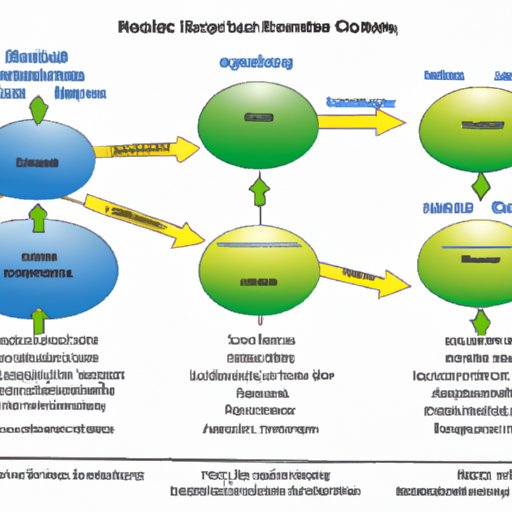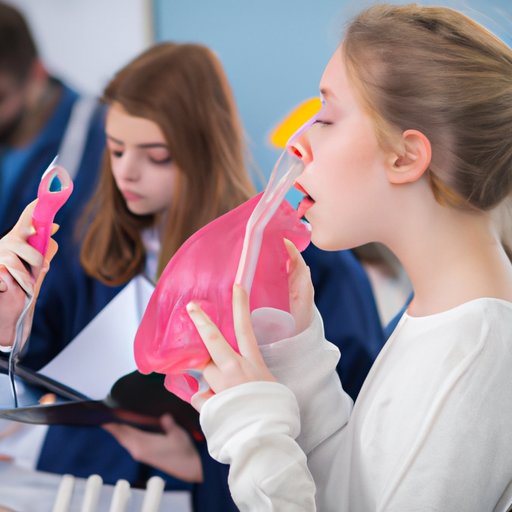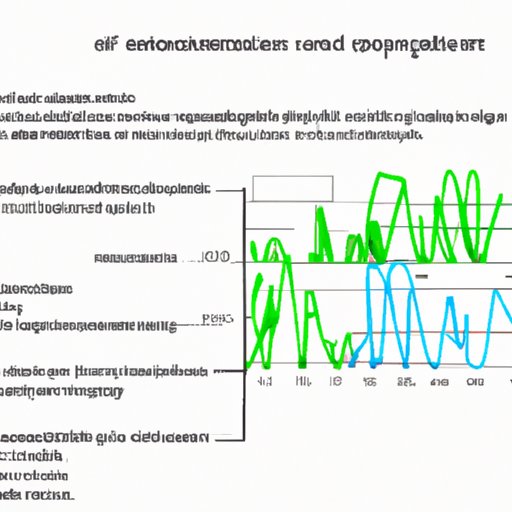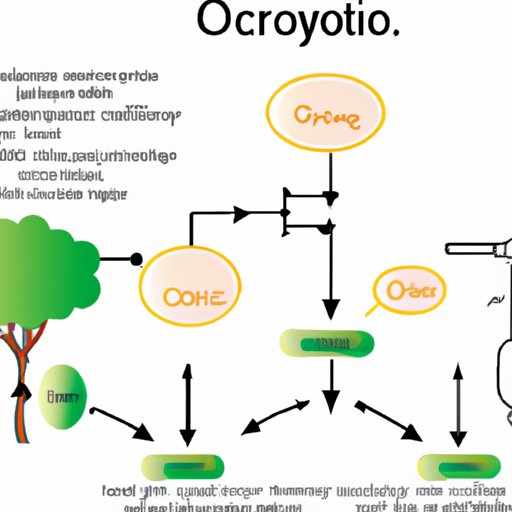Introduction
Respiration is a process that involves the intake of oxygen and the release of carbon dioxide by organisms. It is essential for life and is also known as breathing or ventilation. Respiration is the process by which organisms exchange gases with their environment and is necessary for energy production and metabolism.
Exploring the Science of Respiration: What is it and How Does it Work?
Respiration is a complex process that involves several components and processes. The main components of respiration are oxygen, carbon dioxide, and water. Oxygen is taken in from the environment and used to produce energy, while carbon dioxide is released from the body as a waste product. Water is also used in the process and is integral for transporting oxygen throughout the body.
The process of respiration can be broken down into two main steps: external respiration and internal respiration. External respiration is the process of taking in oxygen from the environment and releasing carbon dioxide. This occurs in the lungs, where oxygen is absorbed into the bloodstream and carbon dioxide is expelled. Internal respiration is the process of distributing oxygen to cells throughout the body and removing carbon dioxide. This occurs when oxygen-rich blood is pumped from the heart to the cells and carbon dioxide-rich blood is returned to the lungs.
An Overview of Respiratory Physiology: Understanding the Basics
In order to understand the science of respiration, it is important to have an understanding of the anatomy of the respiratory system. The respiratory system is composed of the nose, mouth, throat, larynx, trachea, bronchi, and lungs. Air enters the body through the nose or mouth and passes through the throat and larynx before reaching the lungs. The air then travels down the bronchi and is exchanged with oxygen and carbon dioxide in the alveoli, the tiny air sacs in the lungs.
The role of oxygen in respiration is essential. Oxygen is necessary for the breakdown of glucose to produce energy. When oxygen is present, glucose is broken down into carbon dioxide and water, releasing energy in the process. Without oxygen, the breakdown of glucose does not occur and energy cannot be produced.

The Role of Respiration in Energy Production and Metabolism
Respiration is the process by which organisms obtain energy from the breakdown of glucose. Glucose is broken down in a series of metabolic processes to form carbon dioxide, water, and energy. The energy produced is used to power cellular activities. This process of energy production is called aerobic respiration and requires the presence of oxygen.
In addition to aerobic respiration, there are other types of metabolic processes used in respiration. These include anaerobic respiration, which does not require oxygen, and fermentation, which produces energy without the need for oxygen. All of these processes result in the production of energy, but they differ in how they use oxygen and other molecules.

Investigating the Different Types of Respiratory Processes
Aerobic respiration is the most common type of respiration and is used by most organisms. During this process, oxygen is taken in from the environment and used to break down glucose. This produces energy, carbon dioxide, and water. Aerobic respiration is the most efficient way to produce energy, as it produces more energy than any other type of respiration.
Anaerobic respiration is another type of respiration that does not require oxygen. This process is less efficient than aerobic respiration and produces less energy. However, it is still used by some organisms, such as bacteria, to produce energy. In anaerobic respiration, glucose is broken down without the presence of oxygen, resulting in the production of lactic acid and energy.
Gas exchange is an important part of respiration. During gas exchange, oxygen is taken in from the environment and carbon dioxide is released. This occurs in the lungs, where oxygen is absorbed into the bloodstream and carbon dioxide is expelled. Gas exchange is essential for the exchange of gases between the environment and the body.
Exploring the Impact of Respiration on Human Health
Respiration plays an important role in human health. Impaired respiration can lead to a variety of health problems, such as difficulty breathing, fatigue, and weakened immune system. Common respiratory illnesses, such as asthma, COPD, and pneumonia, can also be caused by impaired respiration. These illnesses can cause shortness of breath, coughing, and chest pain.

Examining the Effects of Environmental Factors on Respiration
Environmental factors can also have an effect on respiration. Air pollution, for example, can reduce the amount of oxygen available in the environment, making it difficult for organisms to take in enough oxygen to produce energy. Temperature and humidity can also affect respiration, as high temperatures and humidity levels can make it difficult for organisms to breathe.
Conclusion
Respiration is an essential process for life. It involves the intake of oxygen and the release of carbon dioxide, and is necessary for energy production and metabolism. The science of respiration includes understanding the components, processes, and physiology of the respiratory system. Respiration has an impact on human health, as well as environmental factors such as air pollution and temperature. Understanding the science of respiration is essential for maintaining good health and a healthy environment.
(Note: Is this article not meeting your expectations? Do you have knowledge or insights to share? Unlock new opportunities and expand your reach by joining our authors team. Click Registration to join us and share your expertise with our readers.)
